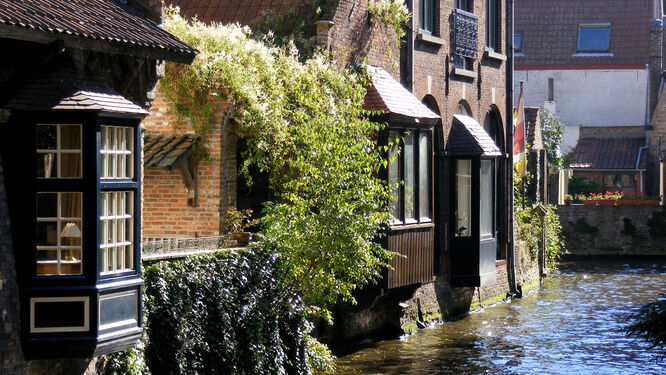Underappreciated Belgium Packs Plenty of Surprises
By Rick Steves
Overshadowed by the powerhouses of Germany, France and Britain, and with little in the way of blockbuster sights, Belgium doesn't make it to many travelers' bucket lists. There are tourists here, but not as many as the country's charms merit. To me, Belgium remains one of Europe's best kept secrets.
Despite its small size, Belgium is diverse. It's divided — linguistically, culturally, and politically — between French-speaking Wallonia in the south and Dutch-speaking Flanders in the north, with bilingual Brussels in between. ("Flemish," the Dutch spoken in Belgium, is even more guttural than textbook Dutch — insert your own "phlegmish" pun here.) And, because of its international business and political connections, more than 25 percent of its residents are foreigners who speak English as their common language.
Belgium is at the crossroads of western Europe, where Romance languages meet the German world, and where the Protestant north meets the Catholic south. It was born as a merchant entity in medieval times (c. 1300–1500), when energetic traders made it one of Europe's richest, most cosmopolitan, and sophisticated lands. On the other hand — located as it is in the crossfire between larger powers — it's also been Europe's battlefield. From Charlemagne to Napoleon, from the Habsburgs to Germany in two world wars, this country has paid a heavy price.
But tiny Belgium has survived by producing savvy businesspeople and excellent linguists, and by welcoming new trends. One Belgian once described his compatriots to me by saying, "We're a mix culturally: one-third English for our sense of humor, one-third French for our love of culture and good living, and one-third German for our work ethic." Yet on a beautiful spring day, it might seem like nobody here has a job — they're all at sidewalk cafés drinking beer in the sunshine.
Belgians have managed to take the best of French cuisine and married it with Germanic influences. They are the world's leading beer consumers and among the world's leading carnivores. And with your meat you'll get a pile of Europe's best fries.
Belgium flies the flag of Europe more vigorously than any other place on the Continent. The "Benelux" union joining Belgium, the Netherlands, and Luxembourg was established in London in 1944 (by the countries' WWII governments in exile), planting the seed that sprouted into today's European Union. Brussels is one of Europe's great cities, and there's a palpable feeling here of being at the center of global events.
Bruges is my other top pick for the best first bite of Belgium. It's one of Europe's medieval gems, a wonderfully preserved town which expertly nurtures its tourist industry, which brings it prosperity like it hasn't enjoyed since it helped lead northern Europe out of the middle ages, 500 years ago. But travelers with an extra few days and a taste for funky urbanity should carve out time for up-and-coming Antwerp and/or Ghent as well.
Lately, with political fractures along its linguistic border, Belgium has seen some difficult moments. But with a thousand years of history behind it, the country seems determined to write a new chapter in its long and illustrious tale.

